How to Choose the Best CBD Treats for Horses' Health
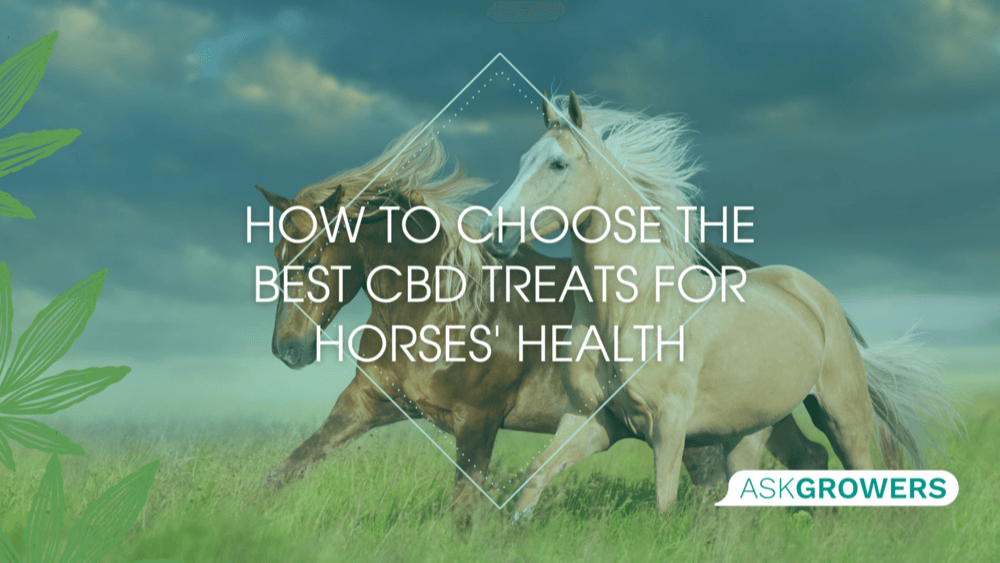
CBD for horses provides a convenient and effective means of administering this natural compound, offering a multitude of advantages for equine well-being. Cannabidiol's potential anti-inflammatory, analgesic, and anxiolytic properties make it a versatile solution for supporting the health of horses. These treats have demonstrated promise in addressing various health concerns, ranging from joint discomfort to anxiety-related issues.
To maximize the health benefits for your horse, it is imperative to select the most suitable cannabidiol treats. Several crucial factors come into play, including quality, sourcing, ingredients, dosage, and product transparency. By comprehending your horse's specific health needs and carefully considering these essential elements, you can make a well-informed decision when choosing cannabidiol treats that will effectively promote your horse's overall well-being.
Subsequently, we will delve into an in-depth analysis of the numerous benefits of this solution to provide invaluable insights that will empower you to make informed decisions when selecting the optimal CBD treats to meet your horse's specific health requirements.
Unraveling the World of CBD Treats for Horses
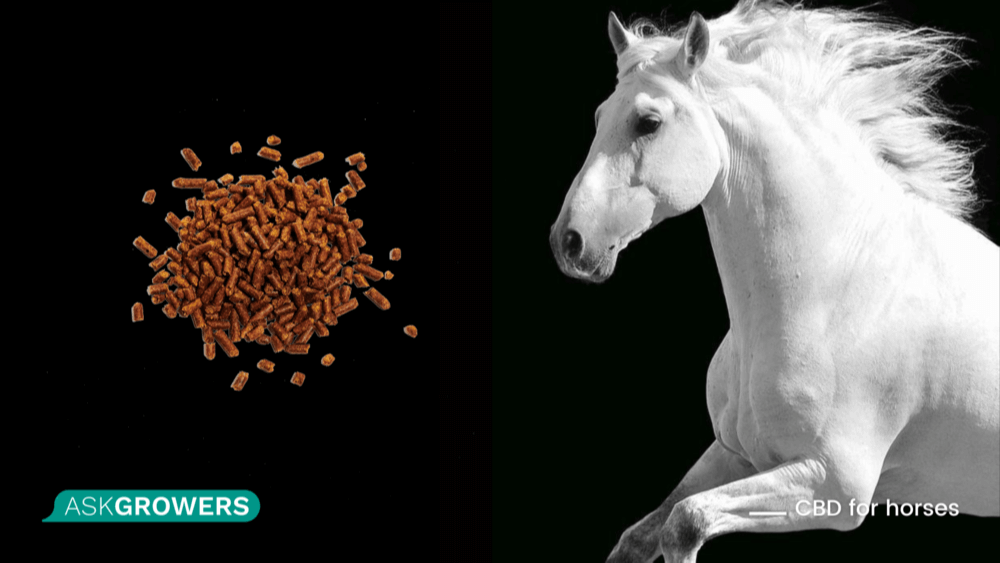
Generally, CBD for pets has emerged as a highly promising addition to the realm of equine wellness, offering a natural and holistic approach to supporting the health of our little friends. As the popularity of cannabidiol continues to soar, it is crucial to gain a comprehensive understanding of CBD horse treats, encompassing their composition and effective utilization in equine care.
These therapeutic treats for our equine companions are meticulously formulated edibles infused with cannabidiol, a non-psychoactive compound extracted from the hemp plant. Typically, horses' CBD treats are composed of a harmonious blend of cannabidiol extract sourced from hemp plants and other natural ingredients. This extract undergoes rigorous processing to ensure the complete elimination of psychoactive elements, such as THC, rendering it entirely safe for equine consumption. Moreover, the inclusion of other advantageous components, such as omega fatty acids, vitamins, and minerals, serves to augment the nutritional profile of these treats.
Administration of CBD edibles for horses involves oral intake, seamlessly integrating them into the daily routine of our pets. These treats are thoughtfully crafted to provide a convenient and delectable means of delivering cannabidiol to horses. The appropriate dosage and frequency of administration may vary depending on factors such as the horse's size, weight, and specific health needs. It is of paramount importance to consult a seasoned veterinarian with expertise in products for pets with CBD to determine the optimal dosage and to ensure impeccable application. So, let’s delve into the vast potential benefits of these treats, exploring their efficacy in addressing a diverse range of health concerns.
Exploring the Advantages of CBD Treats for Equine Health
CBD products for horses have gained popularity among horse owners for their potential benefits in promoting equine health and well-being. Let's delve into the advantages these treats offer:
-
Anti-inflammatory properties: Cannabidiol may help reduce inflammation[1] in horses, offering relief for conditions such as arthritis and joint discomfort.
-
Analgesic effects: CBD supplements for horses can alleviate pain[2], providing relief from various sources of discomfort.
-
Digestive support: Cannabidiol treats aid in maintaining a healthy digestive system[3] in horses, promoting optimal gut function.
-
Soothing and anxiety-reducing effects: CBD for calming horses may have anxiolytic properties, helping to reduce anxiety or stress[4].
-
Immune system modulation: Cannabidiol may support the equine immune system[5], assisting in overall health and resilience.
The benefits of CBD for horses affect a horse's health by interacting with its endocannabinoid system, which plays a crucial role in maintaining balance within the body. Some horse owners prefer cannabidiol treats over other forms of supplements due to their ease of administration, palatability, and potential versatility in addressing various health concerns.
Understanding the Potential Risks of CBD Treats for Horses
Along with CBD for horses benefits, it is important to be aware of the potential risks involved. Here is an overview of the key risks to consider:
-
Lack of scientific research
-
Individual horse sensitivity
The industry of medical CBD products for horses currently lacks comprehensive regulation. This means there is a lack of standardized guidelines, leading to variations in product quality, safety, and accurate labeling. Besides, while cannabidiol is generally well-tolerated by horses, there is a possibility of side effects. These may include drowsiness, changes in appetite, dry mouth, and gastrointestinal disturbances.
By understanding these potential risks, horse owners can make informed decisions and work closely with veterinarians experienced in CBD pet treats to ensure the well-being and safety of their pets.
Selecting Optimal CBD Treats for Equine Health Requirements
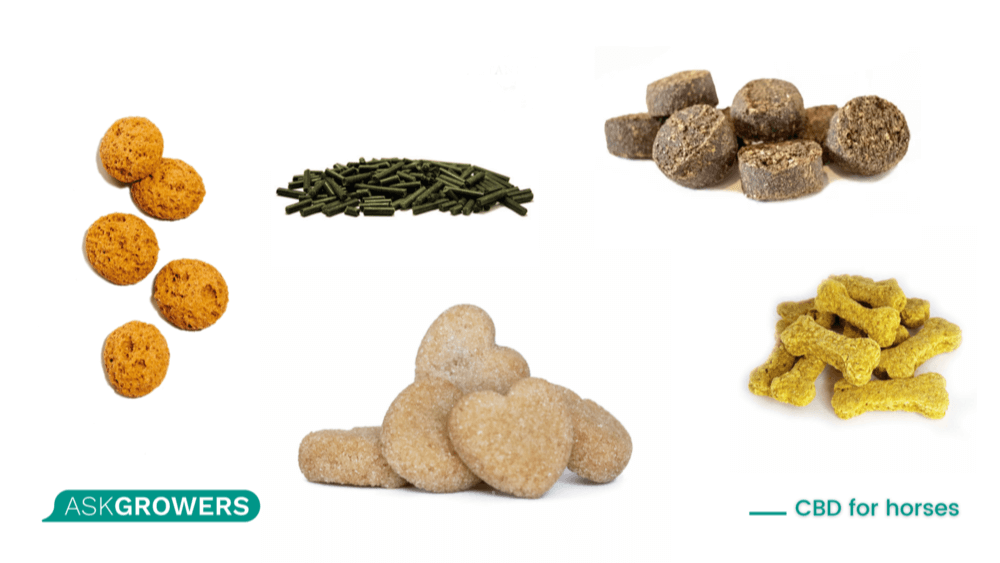
When choosing pet CBD oil or cannabidiol supplements for horses, several crucial factors should be taken into consideration to ensure the best possible outcomes. Here is a list of key considerations:
-
Quality: Opt for treats sourced from reputable manufacturers that prioritize quality control measures, ensuring the use of high-quality ingredients.
-
Ingredients: Look for treats that contain natural, horse-friendly ingredients[7] without unnecessary additives or fillers.
-
Cannabidiol concentration: Determine the cannabidiol concentration per treat to ensure it aligns with your horse's specific health needs.
-
Third-party testing: Select treats that undergo third-party testing to verify their potency, purity, and absence of contaminants.
High-quality treats undergo rigorous testing, ensuring accurate cannabidiol content, absence of contaminants, and proper ingredient sourcing. Reading and interpreting the label of the treat involves looking for clear instructions regarding CBD dosage for horses, batch numbers, and manufacturer details to ensure transparency and informed decision-making.
Best CBD for Horses: Top-Rated Products
Below, you will find a meticulously curated selection of three cannabidiol goods for horses recommended by the experts at AskGrowers. Our team of knowledgeable professionals has extensively researched and evaluated various options to ensure that only the highest quality and most effective products are included.
Conclusion
Using hemp CBD treats for horses can offer potential benefits as well as some risks. Here is a brief pros and cons table to help you weigh the considerations:
| Pros: | Cons: |
|
|
As responsible horse owners, it is crucial to carefully consider your horse's specific health needs before incorporating cannabidiol treats into their routine. We strongly recommend consulting with a veterinarian experienced in hemp-infused supplement usage for horses. They can provide expert guidance, assess your horse's suitability for this kind of treatment, and determine the appropriate dosage and monitoring to ensure their well-being.
References:
-
Crippa, Guimarães, et al. “Translational Investigation of the Therapeutic Potential of Cannabidiol (CBD): Toward a New Age.” Front Immunol. 2018; 9: 2009. Published online 2018 Sep 21. doi: 10.3389/fimmu.2018.02009 available at https://www.ncbi.nlm.nih.gov/pmc/articles/PMC6161644/
-
Whiting, Penny F., et al. “Cannabinoids for Medical Use.” JAMA, vol. 313, no. 24, 23 June 2015, p. 2456, 10.1001/jama.2015.6358. available at https://pubmed.ncbi.nlm.nih.gov/26103030/
-
De Filippis, Esposito, et al. “Cannabidiol Reduces Intestinal Inflammation through the Control of Neuroimmune Axis.” PLoS One. 2011; 6(12): e28159. Published online 2011 Dec 6. doi: 10.1371/journal.pone.0028159 available at https://www.ncbi.nlm.nih.gov/pmc/articles/PMC3232190/
-
Shannon, Lewis, et al. “Cannabidiol in Anxiety and Sleep: A Large Case Series.” The Permanente Journal, 2019; 23: 18-041. Published online 2019 Jan 7. doi: 10.7812/TPP/18-041 available at https://www.ncbi.nlm.nih.gov/pmc/articles/PMC6326553/
-
Nichols and Kaplan. “Immune Responses Regulated by Cannabidiol.” Cannabis Cannabinoid Res. March 2020; 5(1): 12–31. Published online 2020 Feb 27. doi: 10.1089/can.2018.0073 available at https://www.ncbi.nlm.nih.gov/pmc/articles/PMC7173676/
-
Alsherbiny and Guang Li. “Medicinal Cannabis—Potential Drug Interactions.” Medicines (Basel). 2019 Mar; 6(1): 3. Published online 2018 Dec 23. doi: 10.3390/medicines6010003 available at https://www.ncbi.nlm.nih.gov/pmc/articles/PMC6473892/
-
FDA's Regulation of Pet Food. U.S. Food & Drug Administration. available online https://www.fda.gov/animal-veterinary/animal-health-literacy/fdas-regulation-pet-food

 CBD
CBD
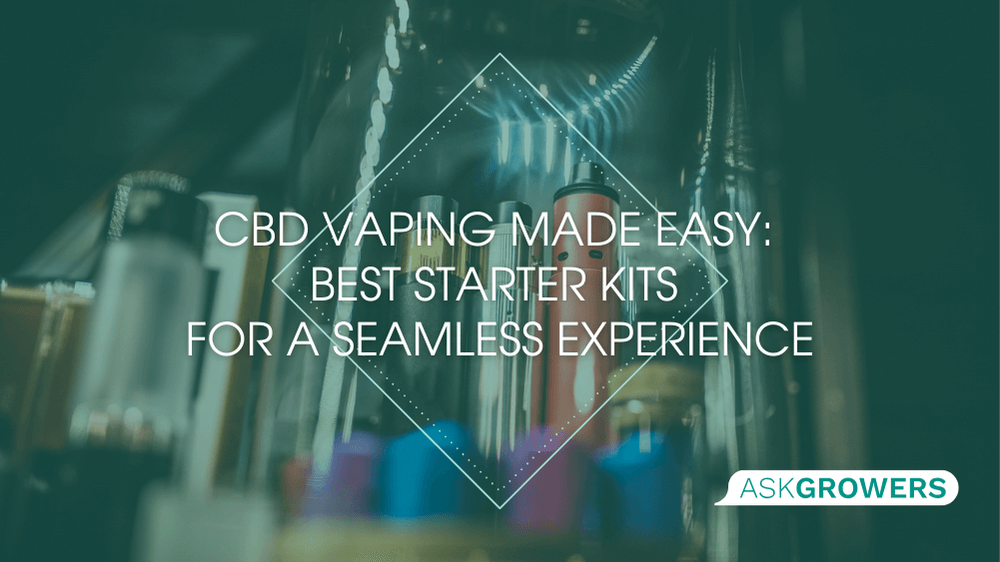
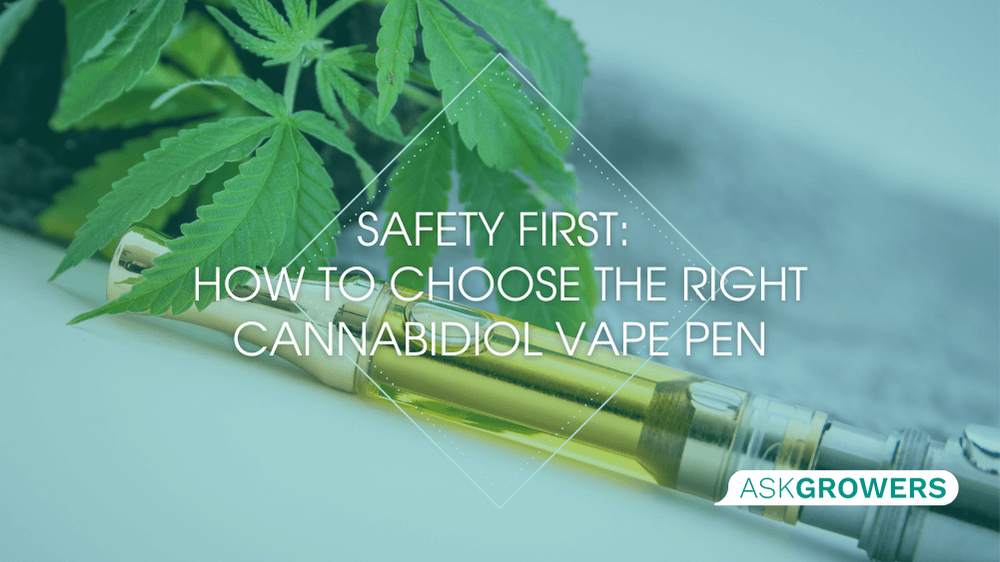
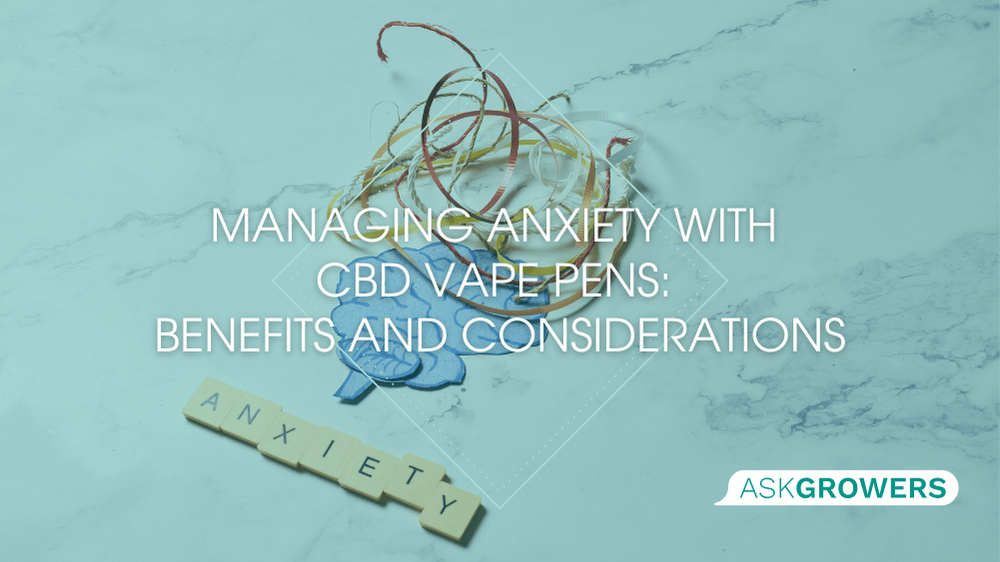
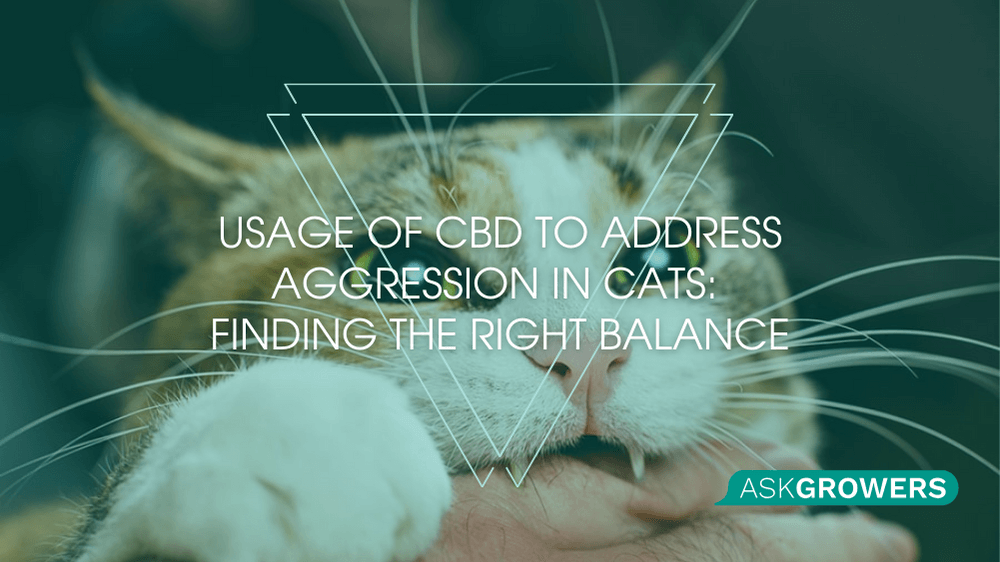


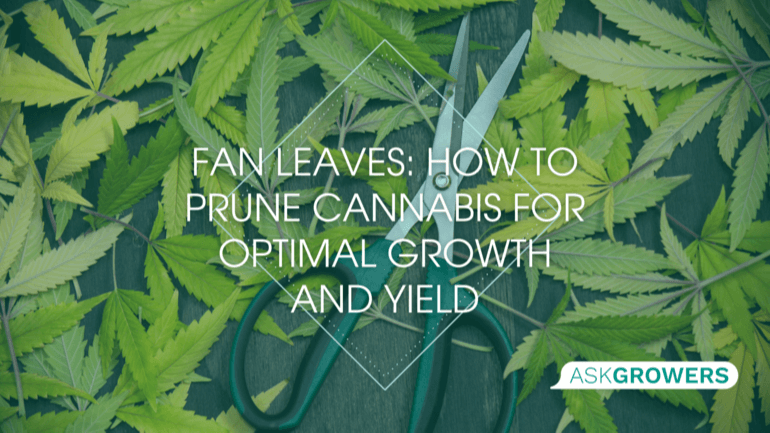
 (1).png)

.jpg)
Be the first and share your opinion
Write a Review